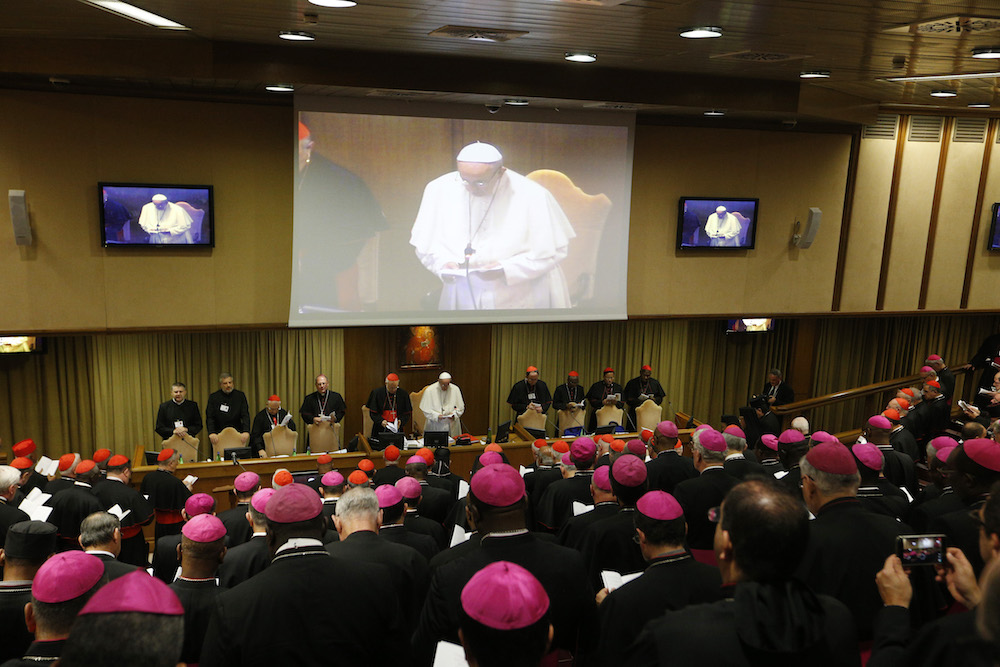Today is the opening day of the third Synod of Bishops under Pope Francis, and despite the seemingly anodyne subject - “Youth, Faith and Vocational Discernment” - it’s potentially the most significant summit so far on this pope’s watch.
Not to put too fine a point on it, but the bishops are gathering in Rome in a moment in which the Church faces perhaps its gravest crisis since the Protestant Reformation in the form of the worldwide clerical sexual abuse scandals, and the eyes of the Catholic world will be on how they choose to engage it.
Founded after the Second Vatican Council by Blessed Pope Paul VI, who’ll be canonized at the midway point of this gathering on Oct. 14, the Synod of Bishops brings together a cross-section of bishops from around the world to discuss some specific theme, leaving it up to the pope what to do with their deliberations.
The first two synods during the Francis era triggered earthquakes ad intra, meaning within the Church’s internal life, with deep tensions over the question of allowing access to Communion for Catholics who divorce and then remarry outside the Church. Those synods culminated in Amoris Laetitia, the pope’s 2016 document on the family in which he opened a cautious door for that access, triggering a ferocious debate among Church insiders that still hasn’t abated.
This time, however, the storms surrounding the synod aren’t just ad intra - though they definitely are that - but also ad extra, meaning the Church’s relationship with the wider world.
The clerical abuse crisis has badly damaged the Church’s moral credibility, made it difficult to move the ball on anything else the Church cares about, and called into question the standing and personal integrity of Church leaders at all levels. Inside the Church and out, there’s a level of anger and disillusionment that’s crippling.
In the run-up, some leading prelates actually called on Pope Francis to cancel or postpone this synod and instead just deal head-on with the issues raised by the abuse crisis. Archbishop Charles Chaput of Philadelphia, for instance, suggested that Francis begin preparations for a synod on the life of bishops.
In reality, however, it almost doesn’t matter what subject the pontiff has invited bishops here to discuss. From the moment most of them get off their plane flights, they’ll want to talk about it, and whether it’s on the synod floor or during coffee breaks or at lunches and dinners, that’s exactly what they’ll spend a good chunk of the month doing.
Further, it may not ultimately matter if the bishops themselves want to face the music, because they’re not the only ones taking part. There are also 36 young “auditors,” meaning participants without voting rights, and there’s already talk that some of them want to ask for “clarification” on recent events - perhaps not so much about the Vigan√≤ charge specifically, but the crisis situation tout court.
Of course, that won’t be the only topic of conversation. The questions of how the Church should relate to youth, how it can pass on the faith to the next generation, and how it can nurture vocations of all sorts are pressing and real - perhaps especially so in the developed West, where a strong share of young people appear profoundly alienated and mistrustful of institutions of all sorts.
To add extra portent, this is the first time a summit of bishops has been convened after a sitting pope has been directly accused by one of his own ex-aides of mishandling abuse allegations, in this case the charge by Italian Archbishop Carlo Maria Viganò that Francis ignored a 2013 warning about misconduct concerns surrounding ex-Cardinal Theodore McCarrick.
Under these circumstances, the bishops gathered in Rome during October will feel enormous pressure to face up to the realities of the moment. Survivors, child protection advocates and experts, reformers within the Church, and ordinary rank and file Catholics stung by the scandals will all be looking to these bishops to supply some sort of hope.
In a Vatican news conference on Monday, I asked Italian Cardinal Lorenzo Baldisseri, who runs the synod in the name of Pope Francis, if he’s concerned that the fallout from the abuse scandals will cast a shadow over this gathering. The gist of his response was that he doesn’t see the present crisis as an “impediment” but an “opportunity,” meaning a chance to show the world a church struggling honestly to get things right.
That brings us to why this synod is such a high-stakes exercise for Francis, and really for him alone.
To be clear, this is not a synod on the abuse crisis. Something of the sort will come in February, when Francis has summoned presidents of the bishops’ conferences around the world to join him in Rome for a three-day summit on child protection.
Yet suppose the prelates gathered in Rome this month do a creditable job of articulating the anger and anguish that their flocks are feeling, and lay all that at the feet of the pope. Then the next question will be what he’s going to do about it - and it’s not entirely clear that waiting for the results of another meeting in February, in itself, will quite do the trick.

